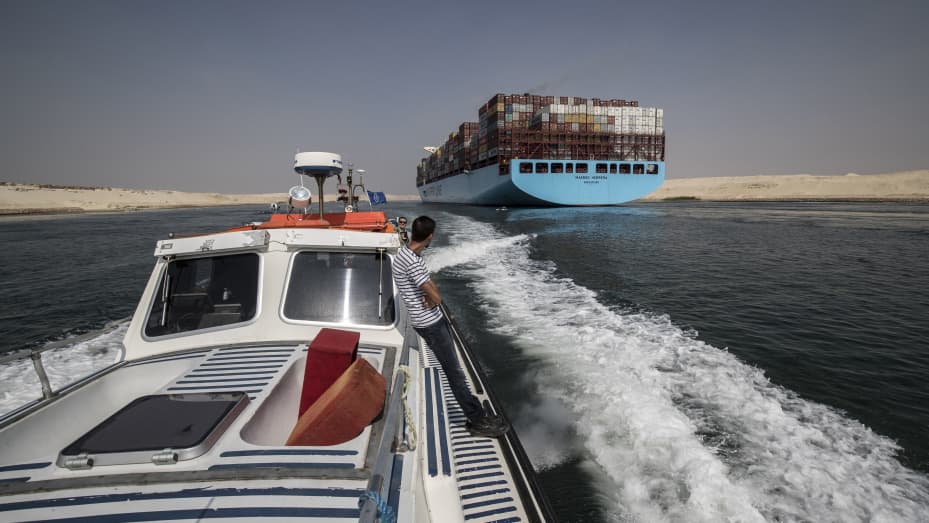
02 Jan Continuing conflict in the Red Sea
In recent weeks, the Red Sea has proven to be a challenging environment for Western shipping interests, and the Maersk Hangzhou found itself in the midst of a perilous situation this weekend. Facing multiple threats, the container ship experienced an attack by Houthi-controlled forces, leading to a dramatic rescue operation by the U.S. Navy.
On Sunday morning, Maersk Hangzhou issued a distress call after four small boats, originating from Houthi-controlled areas of Yemen, launched an aggressive attack. Despite having an onboard security team, the ship came under fire, prompting the intervention of the USS Dwight D. Eisenhower and the USS Gravely. U.S. Navy helicopters engaged the attackers, successfully repelling them and neutralizing three of the boats. The remaining boat fled the scene. Fortunately, no U.S. personnel were harmed, and Maersk Hangzhou continued its commercial voyage with its crew reported safe.
This incident followed a previous attack on Saturday, where the ship was struck by an unknown object. While this did not cause any injuries or fires, it raised concerns about the safety of shipping in the region. The USS Gravely and USS Laboon responded promptly, with Gravely intercepting two inbound ballistic missiles. Despite these challenges, Maersk Hangzhou remained seaworthy.
In response to the incidents, Maersk emphasized its commitment to crew safety, stating that all necessary security measures were in place. The company announced a temporary delay in transits through the Red Sea until January 2nd, allowing time for a thorough investigation and security assessment.
The Houthi forces, responsible for the attacks, have threatened revenge, connecting their actions to political motivations. Some shipping interests have adopted strategic messages, such as “no contact with Israel,” to deter further attacks. Maersk, previously supportive of a U.S.-led security coalition in the region, is now reconsidering its policy on the Red Sea route.
While the White House has not yet pursued a kinetic retaliatory response, the UK has indicated a willingness to take direct action if Houthi attacks persist. The European Union, a key beneficiary of Red Sea shipping, faces challenges in reaching a consensus on responding to the situation due to differing views on Israel’s operations in Gaza.
In conclusion, the recent challenges faced by Maersk Hangzhou underscore the complex geopolitical dynamics impacting maritime security. As shipping companies reevaluate their routes and governments consider responses, the situation in the Red Sea continues to evolve. Navigating these challenges requires a delicate balance between economic interests, security concerns, and international cooperation.

